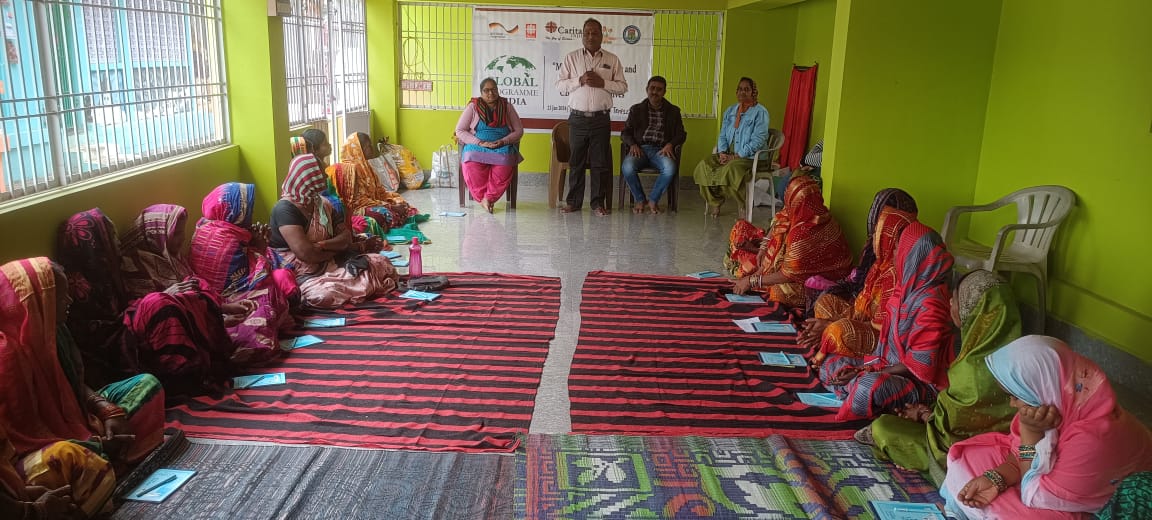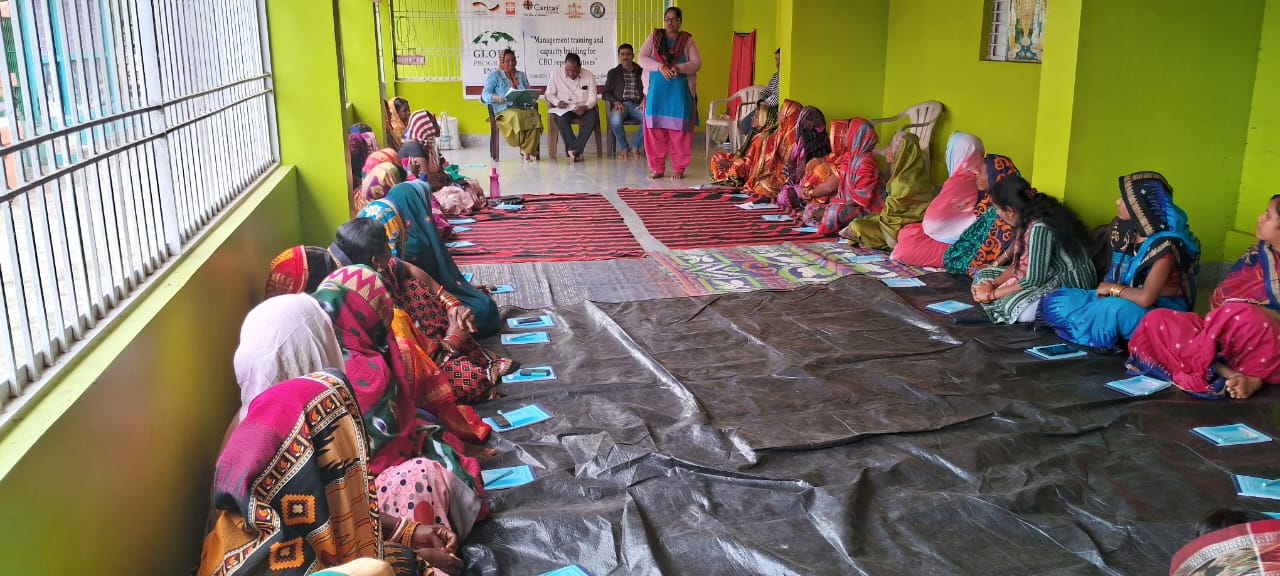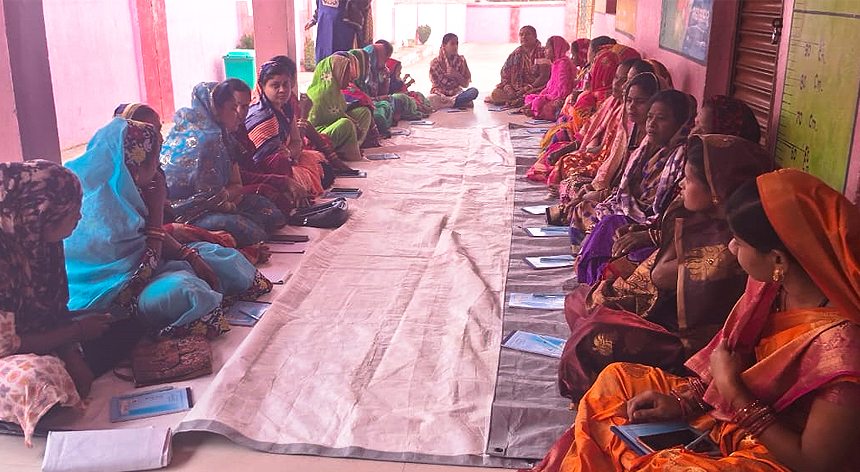Caritas India’s Global Program is making significant strides in empowering women to enhance their resilience, particularly in regions where marginalized populations face ongoing challenges. The program focuses on improving food security, strengthening resilience to natural disasters, and fostering social inclusion.
In India, women bear a disproportionate impact during disasters, facing higher risks of harm and reduced access to relief measures. Caritas India recognizes the multifaceted challenges faced by women, especially those in lower socio-economic groups in rural areas, where traditional cultural practices and limited resources hinder their ability to adapt to climate change.
The long-term effects of floods and other natural catastrophes are equally devastating for women. These disasters create huge economic downfall, especially for women who already face challenges in society. For instance, when floods happen, jobs in farming often drop a lot, making it hard for women to find other opportunities outside their homes. It’s like a big setback for them, affecting their chances for a better future.

To address these challenges, the Global Program is actively engaged in building the resilience of women through various initiatives. Recognizing the critical role women play in agriculture, where over 57.3% of working-age women are employed, the program aims to provide capacity-building measures, peer networks, and tested strategies for women’s economic empowerment.
In Odisha, a key focus area for the program, women from marginalized communities are involved in self-help groups for economic self-reliance. Caritas India collaborates with local initiatives such as the Odisha Livelihood Mission and Mission Shakti to guide these groups. However, due to capacity constraints, many women face challenges in sustaining livelihood activities.

The program’s capacity-building initiatives aim to uncover hidden talents and abilities among self-help group members through systematic training. By providing training on employability, self-independence, and entrepreneurship, women are better equipped to undertake sustainable livelihood activities. The training also covers topics such as advocacy, accessing government schemes, and promoting alternative livelihood options.
For example, a recent one-day training program for 20 women self-help groups focused on livelihood promotion in disaster-prone areas. The training sessions covered crucial aspects such as:
- Women SHG and Options for Sustainable Livelihood Promotion: Exploring avenues for promoting sustainable livelihoods through self-help groups.
- Trade Selection, Project Planning, and Approval Processes: Equipping women with the skills to choose viable trades, plan projects effectively, and navigate approval processes.
- Formation of Women Producer Group and Its Benefits: Encouraging the formation of women producer groups and elucidating the associated benefits.
- Options for Capacity Building and Livelihood Support in Government Schemes: Providing insights into government schemes and programs that offer support for capacity building and livelihood enhancement.
- Advocacy Plans and Formation of Advocacy Teams: Empowering women to advocate for their needs at the Panchayat and block levels and influencing government schemes.
- Alternative Livelihood Options for Self-Sustainance: Exploring alternative livelihood options to ensure self-sustainability.
- Promotion of Micro-Insurance: Encouraging the promotion of micro-insurance to safeguard against life, property, and livelihood losses during disasters.
In addition to these, the training program included valuable contributions from Agriculture Officers and Krushi Mitras, who provided insights into crop diversification, integrated farming systems, and alternative livelihood options such as goat rearing and poultry farming. The program also highlighted the role of Sarpanches in promoting alternative livelihood options like incense stick, badi, papad, and pickle making.
The success of the training program is evident in the proactive response of women self-help groups, who have not only prepared business plans for various activities but have also submitted these plans to the Odisha Livelihood Mission for funding. The commitment of Community Resource Persons (CRP) and Mission Bikash Kendras (MBKs) to process these plans underscores the determination of women to pursue livelihood activities, contributing to economic independence and resilience.
Furthermore, the program promotes micro-insurance among women collectives for life, property, and livelihoods, aiming to replenish losses quickly in the event of a disaster. The women groups are actively supporting each other for household preparedness, contributing to the overall resilience of their communities.
Ms. Sumati Das, a dedicated PRI (Panchayati Raj Institution) member from Bhuamuhi, shared how Caritas India’s Global Program and SWAD collaboration have been instrumental in enhancing not only her knowledge but also her confidence. The training has equipped her with valuable insights and skills, fostering a sense of empowerment to initiate livelihood activities in the near future.
Caritas India’s Global Program is playing a pivotal role in uplifting women from vulnerable backgrounds, providing them with the knowledge, skills, and confidence to pursue livelihood activities, become economically independent, and contribute meaningfully to building community resilience.


Leave a Reply